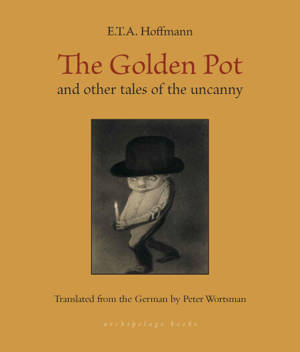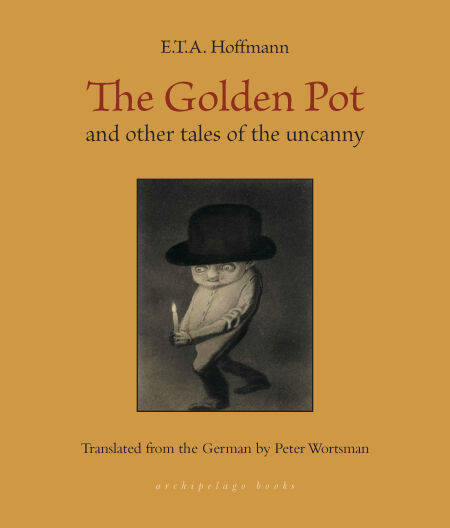
- Afhalen na 1 uur in een winkel met voorraad
- Gratis thuislevering in België vanaf € 30
- Ruim aanbod met 7 miljoen producten
- Afhalen na 1 uur in een winkel met voorraad
- Gratis thuislevering in België vanaf € 30
- Ruim aanbod met 7 miljoen producten
Zoeken
€ 18,72
+ 18 punten
Uitvoering
Omschrijving
Macabre and fantastical, Hoffmann’s wildly imaginative tales offer an unflinching view of human nature and sing clearer than ever in a masterful new translation
Whether a surrealist exploration of the anxieties surrounding automation, or a mystery concerning a goldsmith, missing jewels, and a spate of murders, each tale in this collection reveals the complexities of human desire and fear.
Hoffman, whose most famous work is “The Nutcracker,” is often compared to Edgar Allan Poe. Hoffman’s massive influence qualifies him as the godfather of the German Romantic Movement which led to the horror genre.
The macabre, fantastical nature of his subject matter inspired a broad swath of culture, with two of the longer stories in this collection “The Sandman” and “The Automaton” influencing Philip K. Dick’s original inspiration for Blade Runner. The murder mystery “Mademoiselle de Scudéry” is perhaps one of the earliest prototypes of the detective genre story.
Music and madness flow through E.T.A. Hoffmann’s phantasmagoric stories. The ringing of crystal bells heralds the arrival of a beguiling snake, and a student’s descent into lunacy; a young man abandons his betrothed for a woman who plays the piano skillfully but seems worryingly wooden; a counselor’s daughter must choose between singing and her life.
Peter Wortsman’s masterful new translation allows Hoffmann’s distinct and influential style to shine, while breathing new life into stories that seem both familiar and uncanny.
Whether a surrealist exploration of the anxieties surrounding automation, or a mystery concerning a goldsmith, missing jewels, and a spate of murders, each tale in this collection reveals the complexities of human desire and fear.
Hoffman, whose most famous work is “The Nutcracker,” is often compared to Edgar Allan Poe. Hoffman’s massive influence qualifies him as the godfather of the German Romantic Movement which led to the horror genre.
The macabre, fantastical nature of his subject matter inspired a broad swath of culture, with two of the longer stories in this collection “The Sandman” and “The Automaton” influencing Philip K. Dick’s original inspiration for Blade Runner. The murder mystery “Mademoiselle de Scudéry” is perhaps one of the earliest prototypes of the detective genre story.
Music and madness flow through E.T.A. Hoffmann’s phantasmagoric stories. The ringing of crystal bells heralds the arrival of a beguiling snake, and a student’s descent into lunacy; a young man abandons his betrothed for a woman who plays the piano skillfully but seems worryingly wooden; a counselor’s daughter must choose between singing and her life.
Peter Wortsman’s masterful new translation allows Hoffmann’s distinct and influential style to shine, while breathing new life into stories that seem both familiar and uncanny.
Specificaties
Betrokkenen
- Auteur(s):
- Vertaler(s):
- Uitgeverij:
Inhoud
- Aantal bladzijden:
- 425
- Taal:
- Engels
Eigenschappen
- Productcode (EAN):
- 9781953861719
- Verschijningsdatum:
- 16/10/2023
- Uitvoering:
- E-book
- Beveiligd met:
- Adobe DRM
- Formaat:
- ePub

Alleen bij Standaard Boekhandel
+ 18 punten op je klantenkaart van Standaard Boekhandel
Beoordelingen
We publiceren alleen reviews die voldoen aan de voorwaarden voor reviews. Bekijk onze voorwaarden voor reviews.








